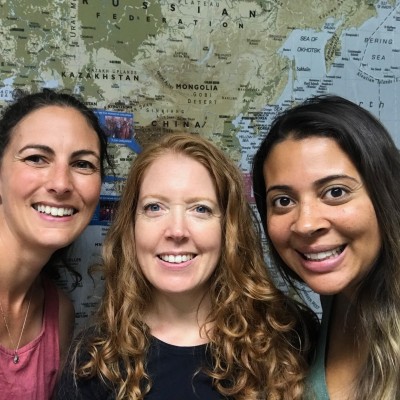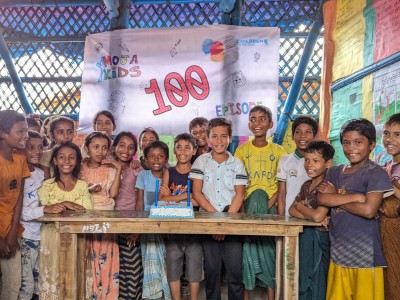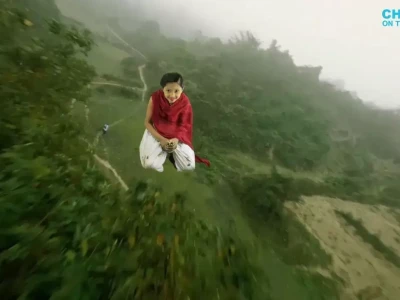In October 2022, staff from our partner organisation in India, travelled to Bangladesh to meet our partners there - Mukti Cox’s Bazar. They wanted to find out more about the digital education Mukti provides for over 9,000 children and see first hand how much of a positive impact it has, so they could deliver digital lessons with the same success in India.
In Bangladesh, we support over 5,000 children with education at bright, colourful learning centres and classrooms. These include Rohingya refugee children living both in Kutupalong refugee camp and on Bhasan Char Island as well as slum dwelling children living in Cox’s Bazar and the Doharazi Enclaves.
To enhance learning and engage the children, daily digital lessons are projected onto screens in each classroom we support.
For Rohingya refugee children living in Kutupalong, the worlds’ largest refugee camp, these digital lessons are produced in a language they understand, enabling the children to genuinely comprehend what they are being taught and actually learn. This technology also gives them the opportunity to experience something of life beyond the confines of the camp.
In addition to the digital lessons, the students have their own online platform, ‘Moja Kids’, where students create video updates to share back and forth with children outside the camps and slum communities where they live. This not only gives them a voice and a place to express their talents and creativity, but enables them to interact and tackle their sense of isolation.
When Sister Veena Jacob and Renji Joseph from our partner organisation in India visited Bangladesh, they were taken to see our classrooms in Kutupalong refugee camp, Cox’s Bazar and the Doharazi enclaves.
Veena and Renji were able to meet with the Mukti’s digital team, who create a huge range of video lessons, and were able to see the green room used to make Moja Kids videos. They were taught the technical aspects of producing these videos, while staff from India joined the training virtually.
Whilst visiting the learning centres in Kutupalong, they shared videos prepared by children from the learning centres in India. These were hugely popular with the children in Bangladesh, who were keen to respond in kind with their own videos. The Bangladesh digital team has since included these videos from India in episodes of Moja Kids, which have been shown across the classrooms we support in Bangladesh.





